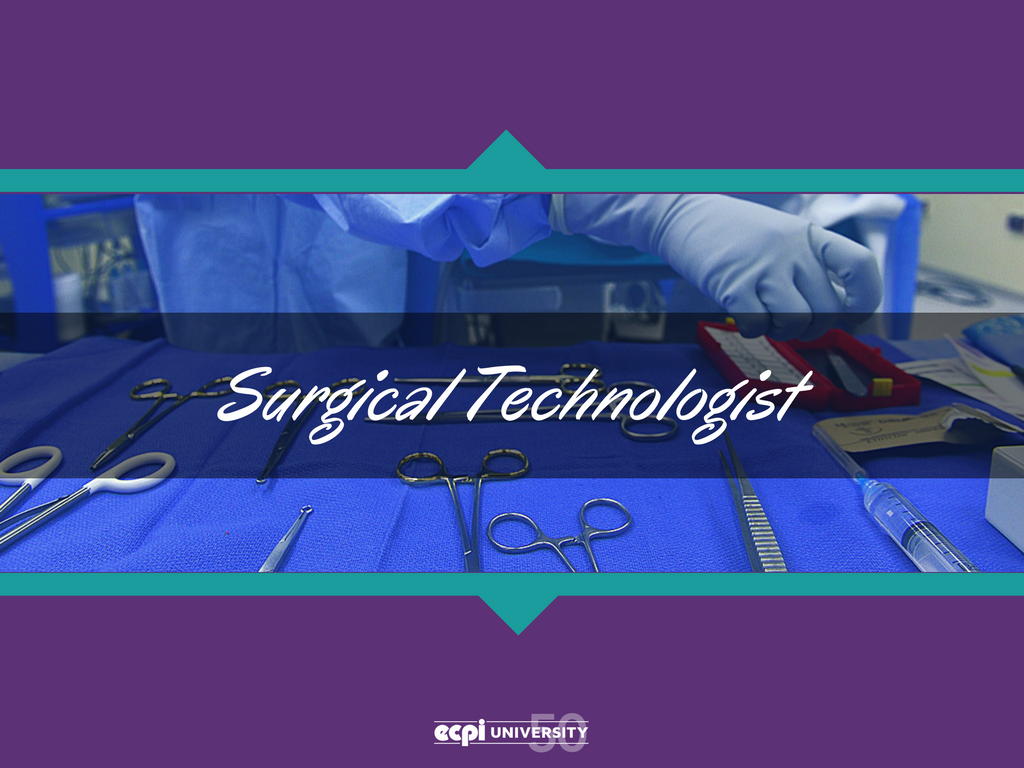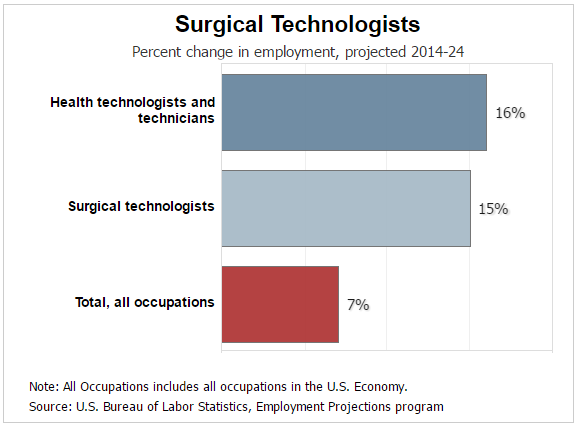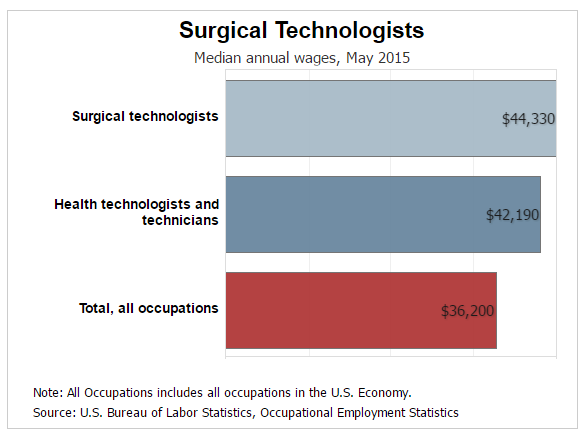What’s the Salary for a Surgical Technologist?
With surgery growing from a dreaded necessity to an on-demand solution to a variety of medical and non-medical problems, the demand for surgeons and their assisting team is also on the rise. The most demanding niches in the modern world include plastic or cosmetic surgery, open heart surgery, and vascular surgery. The increased demand makes it quite lucrative to train as a surgical technologist.
What Does a Surgical Technologist Do?
Surgical technologists sterilize the operation room long before the surgeons step in. The technologists then stay through the operation. It could also be the technologist’s work to ready the patient on the operation table, prepare necessary medication and sterile solutions.
Since it is the role of the technician to keep the room sterile and account for all the tools and swabs used in the operation, it is not uncommon for them to hand over tools and be directly involved in the procedure.
The possible assistance will vary depending on the surgeon’s entourage size. Nonetheless, the fact that a surgical technician can perform a variety of tasks makes them a valuable person to have in the operating room.
As a technologist, you will be specifically trained in the art of preparing, maintaining, and cleaning up an operating room. The result is a highly-skilled person who knows the different safety procedures to follow in the operation who will make the room a safer and more efficient place.
These two factors contribute to the Bureau of Labor Statistics (BLS) predicted 15% employment growth between 2014 and 2024 for surgical technology professionals. This growth is more than twice the average rate of job growth, which stands at 7%.
How to Become a Certified Surgical Technologist
An Associate of Applied Science in Surgical Technology from an accredited institution is the first step. After you graduate you will be eligible to take the Certified Surgical Technologist exam.
Understanding medical terminology and the operation room equipment by heart is a must. The operation hinges on your ability to keep your cool, maintain a sterile environment, hand out the right tool, account for all tools and implements, and support the operation.
Such great responsibility can only be mastered by studying at an institution that gives a perfect blend of theory and hands-on classes. Practicing before entering the job market helps to make lessons tangible to students and give them the start they need to begin working in their field.
Here are some of the most important things you should consider when choosing your training institution.
- The institution’s reputation
- How long will the course take?
- Will the institution help you get an externship or any practical experience before graduating?
- How much will it cost you to train at the institution?
- Is the institution’s certificate recognized and revered in the market?
What to Expect During the Training
The typical surgical technologist course consists of anatomy, physiology classes, lab or mock operation sessions, and surgical rotation. A practice of scrubbing (sterilization and cleaning) and a class on surgical instrumentation is a necessity.
After this, you will have to complete at least 120 surgical procedures under direct supervision before you can qualify to take charge of an operating room on your own. You must note that different states have different laws governing who is and who isn’t a credited surgical technologist even after the graduation.
Some states, like South Carolina, demand that you not only graduate on an accredited program but also attain the Certified Surgical Technician credential and maintain it by continued education and credential renewal to keep working as a surgical technologist within the state. Be sure you know the rules and regulations in your state so you don’t run into trouble down the line.
Work Flexibility and Job Satisfaction
Even though surgical technicians can work on a wide range of operations, from cosmetic projects and simple surgical procedures to complex and long heart surgeries, the job still retains the high stress levels associated with medical careers. However, the many people are drawn to the career for the chance to help others and ensure needed operations are problem-free so the patient can start healing and get back to their daily life.
So What does a Surgical Technologist Actually Make?
The median salary, according to the BLS stands at $44,330 per year. The salary varies depending on your field experience, where you work, and your specific niche. Most surgical technologists work full time and their hours can include nights and weekends, in the case of emergency surgeries.
If you aspire to be a surgical technologist and want to learn more information about earning your Associate of Applied Science in Surgical Technology from ECPI University, then contact a helpful admissions advisor today who can discuss your options.
It could be the Best Decision You Ever Make!
DISCLAIMER – ECPI University makes no claim, warranty, or guarantee as to actual employability or earning potential to current, past or future students or graduates of any educational program we offer. The ECPI University website is published for informational purposes only. Every effort is made to ensure the accuracy of information contained on the ECPI.edu domain; however, no warranty of accuracy is made. No contractual rights, either expressed or implied, are created by its content.
Gainful Employment Information – Surgical Technology - Associates
For more information about ECPI University or any of our programs click here: http://www.ecpi.edu/ or http://ow.ly/Ca1ya.






